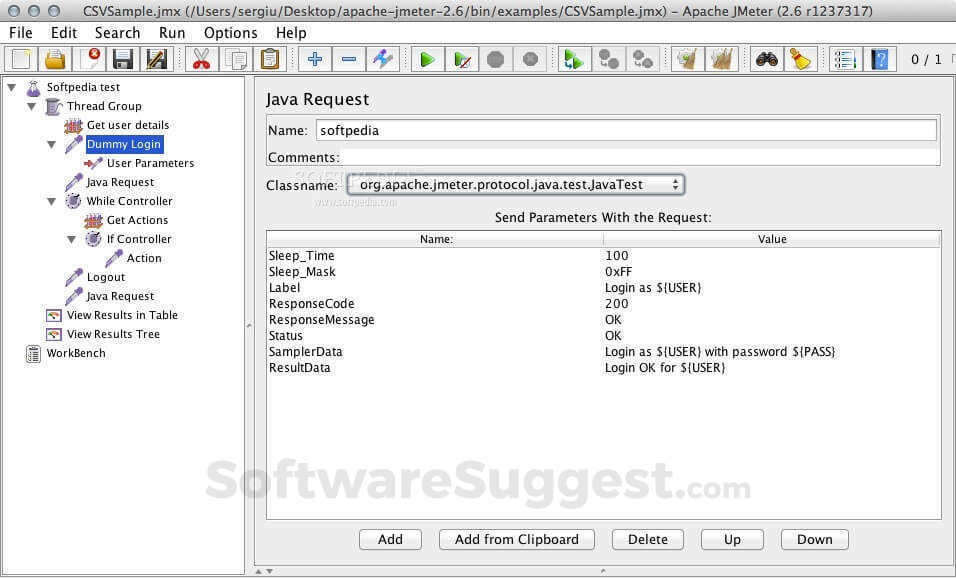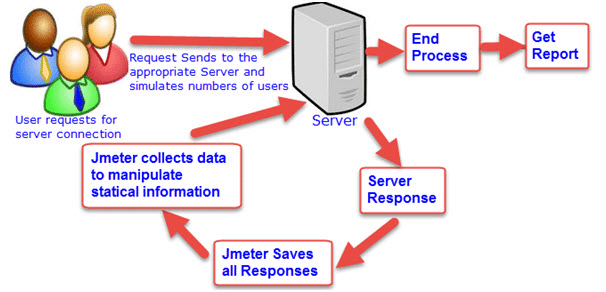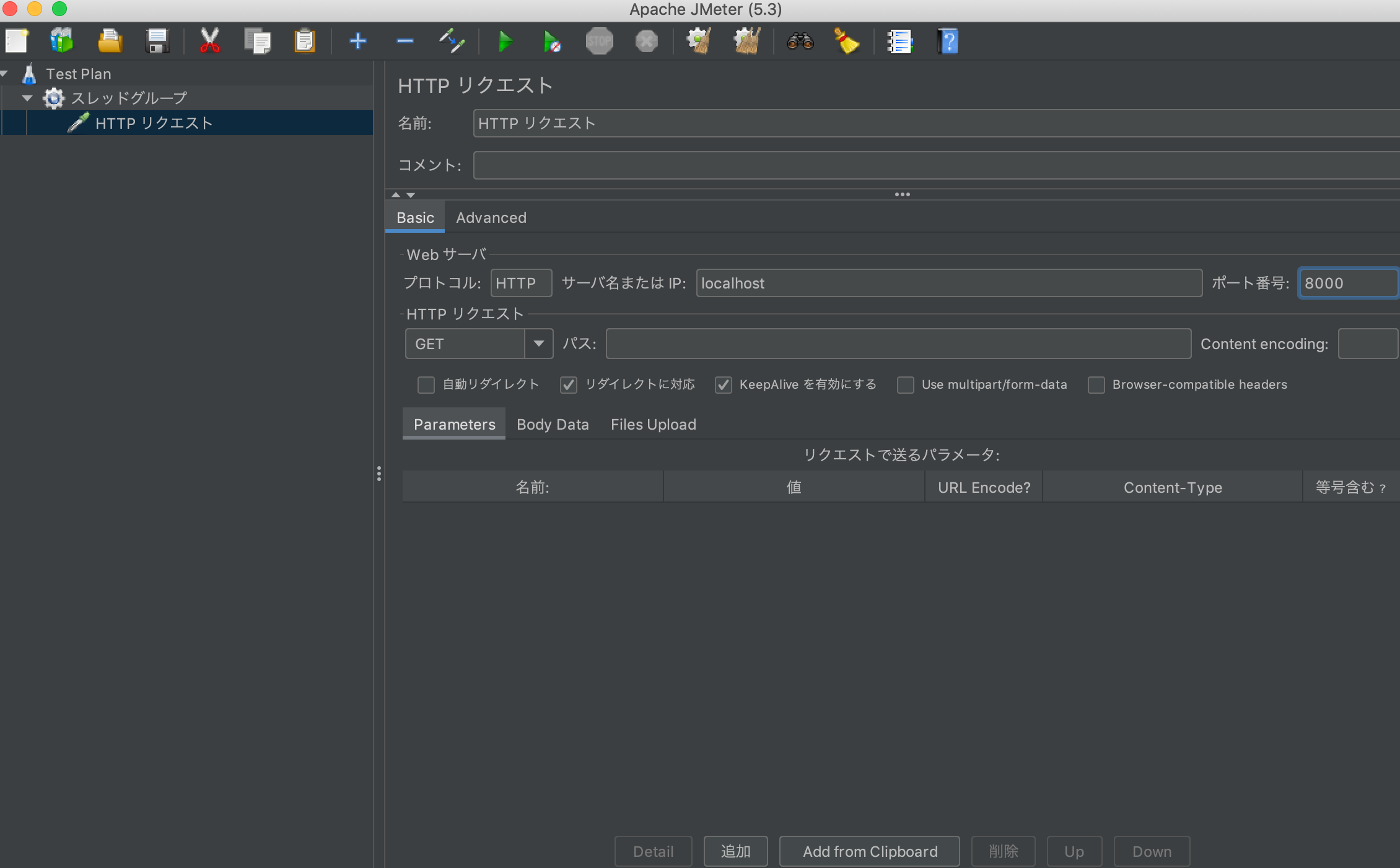List updated: May 2021
- Apache JMeter | Apache JMeter Introduction | JMeter Overview ...
- 2. As Of This Writing, The Latest Version Of JMeter Is Apache JMeter 4.2. You Can Download It Here But This Tutorial Demos Installation Of Version...
- Java
Apache’s JMeter has become an extremely popular open source load testing tool over the years, but like many free tools, it’s missing some critical features. Because of this, many businesses looking to perform load or stress testing are often left searching for JMeter alternatives to load test their websites and web applications.
May 01, 2019 Apache JMeter is an open-source performance testing tool; developed in Java. JMeter does not require any purchasing or licensing cost. It means that you can conduct the performance testing of an application or a software system without spending a single penny on the tool. Download Apache JMeter. We recommend you use a mirror to download our release builds, but you must verify the integrity of the downloaded files using signatures downloaded from our main distribution directories. Recent releases (48 hours) may not yet be available from all the mirrors. JMeter is an Apache project that was originally designed to test web applications but later developed to perform different test functions. JMeter is used to measure and observe the performance of web sites or a variety of services.
- In this course we will learn Jmeter from scratch step by step. We will learn the basics in a very easy way and you will be able to use JMeter for all types of performance and functional testing. After this course you can work with JMeter for personal and enterprise projects.
- Eviware, the maker of soapUI, Web Service Testing LeadersoapUI is a tool for functional.
In order to make this list as comprehensive as possible, we’ve included both paid and open source alternatives to JMeter. You’ll find a variety load testing tools on this list, some that are geared more toward large-scale performance testing, and others that are geared more toward one-off, smaller scale tests. At the end of this page, you’ll also find some tips and tricks related to load and performance testing.
Just a quick heads up to our readers—if you purchase services (hosting or testing) from this page, we might get an affiliate commission when you buy, and we totally appreciate it! Also, we may have business or advertising relationships with some of the companies on this list. But don’t worry—we don’t recommend junk no matter what! 😊
Without further ado, here are the 12 best JMeter alternatives this year!

1) LoadView by Dotcom-Monitor
LoadView is one of the best load testing tools on the market today, with some really cutting-edge technology incorporated into the product. The depth and capability of LoadView are what make it one of the most interesting JMeter alternatives available (even though it’s a paid tool). One of the main selling points of LoadView it uses real browsers instead of just a flood of HTTP pings for load testing.
What does that mean, specifically? It means that when you run a load test with LoadView, you’re mimicking real users as closely as possible, which gives you the most accurate user-behavior data. There are a lot of other load testing solutions on the market, but Dotcom-Monitor’s LoadView really gives you a lot of options. Some other features of LoadView include:
- Real browser testing, with a variety of mobile and desktop options
- Create your own scripts via their EveryStep recording tool
- Test web applications, websites, web services/APIs and more
- 100% cloud managed—no infrastructure to deploy
- On-demand or monthly pricing—no commitment required
2) Gatling
Gatling is an interesting tool because it’s a lot closer JMeter than some of the other options on this list. Essentially, Gatling is designed for continuous load testing in order to integrate with your development pipeline.
However, just because Gatling is open source and free, doesn’t mean that all products associated with it are. In fact, Gatling Frontline is the enterprise version of Gatling, and that definitely costs money, although it’s targeted at businesses who can typically afford to pay for an enterprise-grade testing tool.

Gatling Frontline has two different options: on-premise, and cloud-based load testing run through Amazon AWS. Depending upon what type of infrastructure you’re testing (public-facing vs. internal) one or the other might be better. Some noteworthy features of Gatling Frontline are:
- Multi-protocol support
- Unlimited throughput
- Cloud-based load injectors
- Integrations with popular tools like Jenkins, Bamboo etc.
- Customizable reports
3) Apache Benchmark
A very direct alternative to JMeter is Apache Benchmark, which is essentially a command line tool for benchmarking an HTTP server. This doesn’t do external load testing, can’t test web applications, doesn’t use real browsers, etc. Benchmark is a simple tool that’s designed to do one thing and one thing only—benchmark the HTTP performance of your service.
While JMeter can load test SOAP/REST webservices, TCP, Java Objects, and other similar protocols, Benchmark is really just for testing HTTP performance. That said, Benchmark has some of these cool features:
- The ability to specify an SSL/TLS protocol
- Report errors if the response is not constant
- Report the size of the send/receive TCP buffer
- Add a cookie to the request
- Write results to a CSV file
4) Grinder
Of all the Apache JMeter alternatives on this list, Grinder is probably the closest free option. It’s an open source load testing framework that allows users to run a distributed load test using a number of load injector machines. The nice thing about Grinder is that it has a true open source license, so you’re free to use it in a variety of situations without having to pay. Some of the best features of Grinder include:
- The ability to load test anything (yes anything) that has a Java API
- Excellent support for Java
- Flexible scripting that uses Jython and Clojure
- The ability to manage cookies and SSL proxies
- Dynamic scripting with sequential test execution
5) Tsung
Tsung is another excellent, free JMeter alternative that functions as an open source, multi-protocol distributed load and performance testing tool. Similar to JMeter, Tsung can test a lot of different web protocols like HTTP, SOAP, PostgreSQL, and MySQL to name a few.
Although Tsung doesn’t use real browsers like LoadView or emulate users in a more realistic way via HTTP like some of the other tools on this JMeter alternatives list, it still does a good job of load testing in order to test scalability and performance of IP-based and web client servers. Some notable features of Tsung include:
- Distributed load injectors
- Support for a variety of protocols
- Multiple IP address support
- OS monitoring (CPU, memory usage, bandwidth etc.)
- Built-in web dashboard
6) FunkLoad

FunkLoad is a fully-functional load testing tool, used for regression and straightforward load testing. It’s an excellent alternative to JMeter because it’s free and can be deployed in a similar fashion. As long as you don’t require more in-depth load testing of different web frameworks like SOAP APIs, it’s something that can be quite useful for a variety of situations. FunkLoad is coded in Python, making it easy to understand and relatively seamless. Some notable features of FunkLoad are:
- Get/post/put/delete support
- Standard authentication support
- Support for basic cookies
- SSL/HTTPS support
- Details stats and performance metrics
7) Locust
Locust is another open source load testing tool—in other words, a true JMeter alternative (not that the paid tools aren’t true alternatives—they’re better in a good way, but Locust is more of a one-to-one option). Locust is written in Python to make it very user-friendly (assuming you have some coding chops) and is used by tons of big companies including Microsoft, Mozilla, and more. Here are some notable features of Locust:
- Program-specific user behavior in Python
- Fully-editable load test scenarios
- Flexible options for testing various protocols
- GUI available
- Distributed and scalable load tests are supported
8) BlazeMeter
BlazeMeter is a heavy-hitter when it comes to paid JMeter alternatives. It’s definitely a feature-rich platform that caters heavily to enterprise-grade clients. They’re really feature-complete when it comes to load testing and have the ability to do APIs, functional and performance testing, mock services, API monitoring and more. Notable BlazeMeter features include:
- Functional testing with Selenium integration (no coding necessary)
- Simulate a wide range of users from over 55 geo-locations
- Virtualize and test all parts of your system with mock services
- Support for testing 3rd party APIs
- On or off premise testing available
9) Loader

Loader (sometimes referred to as Loader.io) is a free JMeter alternative created by SendGrid (the well-known email software company if you’re not already familiar). Loader is a free tool only on the lowest tier that offers 10,000 clients per test, 1 target host, 1 minute test, and 2 URLs per test. If your testing requirements go beyond that, then you’ll need to upgrade to their pro plan, which is $99.95/month. They also offer more testing options which are available by contacting them. Notable Loader features include:
Apache JMeter | Apache JMeter Introduction | JMeter Overview ...
- Free version with 10,000 clients
- 2 URLs available for testing in the free version
- Web-based interface (no coding required)
- API support available
- Real-time data and statistics
10) WebLOAD
WebLOAD is a popular paid load testing tool from Radview that caters enterprise businesses and offers both on-premise and cloud-based load testing. It has a free edition for on-premise testing scenarios, and then other options must be quoted by a sales rep for pricing. They offer infrastructure monitoring as well and Selenium integration along with expert support options.
- Free edition for on-premise testing
- Integrations with popular software like DynaTrace and New Relic
- Real-time reporting
- Web-based dashboard
- APM integration
11) LoadRunner
LoadRunner was developed by Hewlett Packard (HP) and was one of the largest enterprise load testing options for a long time. In September 2017, LoadRunner was acquired by Micro Focus and is now part of their company. LoadRunner is geared toward project-based performance testing that caters to enterprise needs with capacity for extremely large-scale testing options. Notable LoadRunner features include:
2. As Of This Writing, The Latest Version Of JMeter Is Apache JMeter 4.2. You Can Download It Here But This Tutorial Demos Installation Of Version...
- Simplified testing for 50+ technologies and app environments
- Auto-correlation engine that helps to quickly identify performance issues
- Scripts can easily be modified to simulate real user behavior
- Public cloud options available based on performance testing needs
- Support for multiple scripts is available
12) SoapUI
SoapUI is an interesting addition to this list of JMeter alternatives because it’s primarily geared toward the testing of APIs, but that’s important because APIs are one of the most commonly load tested protocols. When you think about it, that makes sense—imagine how heavily-hit some popular APIs are in terms of load/demand. SoupUI calls itself the “world’s most popular API testing tool” which may be accurate given the number of downloads and large companies such as Apple, Microsoft and SalesForce that use it. Some notable features of SoapUI include:
- Functional API testing beyond the GUI level
- API performance testing at the enterprise level
- API mocking and virtualization
- Data-driven testing options
- Detailed reports and statistics
Final Thoughts on JMeter Alternatives For Load/Stress/Performance Testing
If it’s not abundantly clear from this list—there are a LOT of options when it comes to JMeter alternatives, which might not make the choice easier.
Ultimately, you need to look at what your needs are and go from there…
Are you a large company that needs enterprise-level testing or the capability to have users emulated as accurately as possible? If that’s the case, you may want to consider something like LoadView or LoadRunner.
Are you a developer on a budget just looking to test your server for capacity? If that’s the case, you may want to go with something like Tsung or even Apache Benchmark.
And of course, if you fall somewhere in the middle, then you need to check out different options and evaluate what’s best for your specific scenario. Many of the tools on this list are free, which means you can try them out to see if they’ll work. Alternatively, the paid tools on have demos available so you can see the features and find out if they’ll work for your needs.
Hopefully this JMeter alternatives list helps you understand your options when if comes to the world of load and performance testing. If you have any questions, comments, or feedback about this list, feel free to reach out via our contact page. Happy load testing!
Google uses cookies and data to:- Deliver and maintain services, like tracking outages and protecting against spam, fraud, and abuse
- Measure audience engagement and site statistics to understand how our services are used
- Improve the quality of our services and develop new ones
- Deliver and measure the effectiveness of ads
- Show personalized content, depending on your settings
- Show personalized or generic ads, depending on your settings, on Google and across the web
Java
Click “Customize” to review options, including controls to reject the use of cookies for personalization and information about browser-level controls to reject some or all cookies for other uses. You can also visit g.co/privacytools anytime.